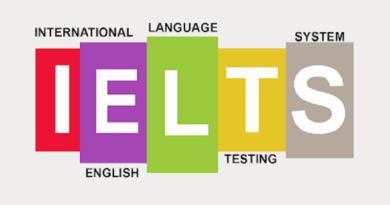Executive MBA – Everything you need to know!
The first step for aspiring MBA students is determining what MBA program they will pursue. If you are thinking of doing an MBA, it is imperative to select a program suitable for your career goals.
There are a lot of specialized MBA programs available for you to enroll in, and among them is EMBA – Executive MBA.
But, What is an Executive MBA?
Read on as we talk in detail about Executive MBA, its importance, the types, and the tips.
What is an Executive MBA (EMBA)?
EMBA is a program for seasoned business leaders who want to learn, develop, and polish their managerial skills and leadership.
The EMBA program is specifically for experienced professionals who focus less on business basics and more on business specifics. The EMBA program is designed specifically for mid-level and higher-level managers, with a curriculum and format that caters to their needs.
A typical executive MBA program takes two years to complete, although some schools offer accelerated programs that may be completed in 19 months or less. There are usually fewer total classes in EMBA programs – on evenings and weekends – so that students can continue working while attending class.
Career Prospects of Executive MBA
Executive MBA programs are preferable after four or more years of managerial experience to deal with changes in the industry, switch careers, or begin a new business. Even though an EMBA can lead to a career change or start a new business, it’s often one of the best ways to advance in your current field.
There are numerous benefits to earning an EMBA. Potential salary increases will be one of the top benefits of EMBA once equipped with top-notch skills and credentials.
In India, you can earn up to INR 9-15 lacs with work experience of 5-10 years.
Also, according to the 2020 EMBAC Student Exit Survey, EMBA graduates received a 14.1% pay raise after program completion – both salary and bonus. Furthermore, 39% of students received a promotion during the program, and 53% reported increased responsibilities.
An average salary and bonus package was $169,269 at program start. And, after the completion of the program, the average salary and bonus package increased to $193,200
These salaries vary depending on the companies and the location. These programs can also help you build your network and develop your career. The best programs give you the chance to network with classmates who may be directors or vice presidents of companies.
The requirements for applying to an EMBA program
1. Obtain a bachelor’s degree in any field
2. An official transcript of records.
3. Minimum of 3-5 years of work experience
4. Experience in management or supervisory roles
5. GMAT or GRE scores
6. Letters of reference
7. Minimum English language test scores: IELTS Academic 6.5, TOEFL iBT (80), or PTE Academic (60)
8. Letter of motivation
Several universities may also have additional criteria. Do check the university’s website for more requirements.
Types of Executive MBA
As EMBA students are working professionals, attending classes becomes challenging due to their work commitments. To address this need, three types of executive MBA programs are available.
Full Time
Full-time EMBA is the best suited for working professionals with more than 4-5 years of experience. The Executive MBA lasts one year.
Teamwork is a crucial component of the Executive MBA program. Some of the topics covered in the curriculum are Strategic Management, Marketing, International Business, Executive Communication, etc.
Online EMBA
Many professionals choose this program because it doesn’t require them to leave their jobs. The Executive MBA courses last for about 15-20 months.
In comparison to on-campus courses, online executive MBAs cost less. To be eligible for online MBA programs, one must have at least a 3.0 GPA out of 4.0 and a GMAT score of 550 or higher.
Week-end EMBA
Weekend MBAs are also an option for students who want to continue working and have super busy workdays. It requires three years of work experience, and the duration is 18 months.
Tips on determining the Business School
Amidst the many MBA institutes available on the market, choosing the right executive MBA business school can be challenging. Here are some tips that will help you select the best-fit business school for you.
- Advance selection course mode
EMBA programs differ in terms of duration. Given that, EMBAs are available in part-time modes. You should find an institute with flexible timings. So that your work hours do not clash with institute hours, causing you to have to quit.
- Consider Return on Investment (ROI)
Choosing the right MBA program for you is crucial. Research if your program will help you obtain a better salary package to recoup your investment.
Make sure your salary after program completion is more than the amount you spent on your studies.
- Look for future opportunities
Check out the job opportunities related to the course you chose. Make sure you stay on top of the benefits it brings overtime.
- Learn about the Institute
Learn about the institute before enrolling in one. You can learn a lot from seeking opinions from current and former students in public forums. Make sure you thoroughly go through the brochures and websites.
- Learn about academic staff
Before registering for an EMBA program, you should consider the credentials of the faculty member. A successful business school must have qualified and experienced faculty members.




